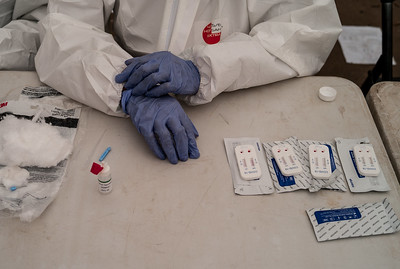WCC evidently plans to re-open its campus on July 1. Before you get too excited about WCC’s re-opening, you should ask (and get answers to) some questions. Questions like:
Will WCC’s re-opening plan include testing and tracing?
Testing and contact tracing are two of the cornerstones of safe re-opening plans. Many colleges and universities have established testing and contact tracing plans. It’s important to know when you’re on campus, what rooms you’re in and who you’re with. Will WCC ask you to sign into and out of classrooms? Does WCC’s re-opening plan include on-campus COVID-19 testing? Will testing be optional or mandatory?
If WCC has no plans to offer testing and contact tracing, you would do well to keep your own records. Minimally, you’ll need to note where, when, with who and how long. The length of time you’re in any one place is important. The longer you spend in one place, the more likely you are to come in contact with the virus.
Should you schedule classes early in the day?
Studies are showing that the “viral load” of a place increases as time goes on. If you’re trying to be strategic about avoiding the virus, the earlier in the day you take classes, the less likely you are to encounter the virus. Conversely, evening classes in rooms that have been used all day pose a higher risk to occupants. Online classes pose the least risk, but if you can’t take classes online, the earlier sections may be a better bet.
Should you pick shorter-term classes?
Not all classes at WCC end at the end of the semester. 7.5-week and 10 week classes both finish before December 1. Getting off campus before flu season hits is a great strategy. Paired with taking late-start classes in the Winter semester, you could potentially avoid peak transmission times.
What plans has WCC made to cover for instructor illness?
As a student, you should expect WCC to have a plan in place to conduct classes, even when your instructor falls ill. For some, being physically present in the classroom could be very dangerous. Prolonged exposure to a space increases the risk of contracting COVID-19. Further, WCC instructors have varying risk profiles based on their ages and overall health. And hospitalizations for COVID-19 run – on average -10-17 days. Not everyone who contracts COVID-19 will become seriously ill or require hospitalization. Some people may not even know they’re sick. But if an instructor does become ill, his or her classes could easily get derailed without backup instruction plans. So WCC and the WCCEA should make their temporary coverage plans for on-campus classes known for each class.
What plans has WCC made to cover for student illness?
As a student, you should expect WCC to have a plan in place to help you stay on track if you become ill. If you cannot finish assignments, or cannot complete the course, what options will WCC offer? How will getting sick impact your transcript? What’s the plan for allowing you to complete labwork or classwork if your illness occurs late in a semester? What is the impact on your financial aid?
What are WCC’s sanitation plans for each class space?
Will classrooms be cleaned and ventilated between sessions? Will classes run back-to-back in specialized classrooms like the welding lab or the auto shop? How many students will be permitted in a classroom at one time? Which classrooms and which campus facilities will be open? Will class sizes be limited? Will WCC provide hand sanitizer, masks and/or gloves for students? What’s the plan if students can’t provide these on their own?
What will the decision to open/close the campus be based on?
If conditions in Washtenaw County change mid-semester, what standards will WCC use to trigger a campus closure? What standards will trigger WCC’s re-opening?
WCC’s re-opening could be a bright spot in an otherwise dark moment. But students, faculty and staff members need a lot of information about WCC’s re-opening plan to let them judge their own personal risk when they enter campus.
Photo Credit: World Bank Photo Collection, via Flickr













